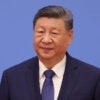
President Barack Obama made waves during his trip to India by telling the Indian parliament that “in the years ahead, I look forward to a reformed United Nations Security Council that includes India as a permanent member.” This simple, vague statement has become the headline for his entire visit with U.S. and Indian media declaring that “Obama supports adding India as a permanent member of U.N. Security Council” and “Obama Backs India Bid for UN Security Council Seat” and “Obama backs UNSC bid, slams Pakistan.”
The statement made news because until the speech, the U.S. had only endorsed Japan as a new permanent member of the UN Security Council, albeit within the context of modest expansion. The inclusion of India among the countries that the U.S. is willing to see on an expanded Security Council is understandably celebrated in India.
But when you look at President Obama’s remark, it is not entirely clear that the U.S. would actually support a proposal for India to gain permanent member status on the Council if presented with the opportunity. ABC news indicated that “U.S. is backing India’s membership only in the context of unspecified reforms to the council that could take years to bring about.” The President did not say what those reforms were, if it would accept an expansion proposal that went beyond India and Japan, or whether the U.S. would support giving a new permanent member the veto over Security Council resolution like that possessed by the current five permanent Security Council members.
All of these issues are critical. India has been crystal clear in its position:
The composition of the Security Council needs to change to reflect contemporary realities of the twenty-first century. This implies, in the first instance, increase in the membership of the Security Council in both the permanent and non-permanent categories. Second, new permanent members should have the same responsibilities and obligations as the current permanent members. Third, veto should be extended to new permanent members. This is predicated on the logical and principled position that there can be no discrimination within the same category of members of the Security Council.
Based on U.S. policy under previous administrations, India’s stance on U.N. Security Council expansion is unacceptable. The U.S. can’t simply approve of permanent seats for Japan and India. Any reform of the U.N. Security Council opens the door for a larger expansion. Under the Bush Administration, the U.S. indicated that it was prepared to accept “two or so new permanent members and two or three additional nonpermanent seats, allocated by region, to expand the Council to 19 or 20.” This is starkly at odds with the proposals being discussed in recent years at the U.N. which involve an expansion of the Council by 10 or 11 seats, including as many as 6 new permanent members.
This reluctance is based on experience. The Security Council is by no means perfect. It is subject to delay and indecisiveness. Getting resolutions through the U.N. Security Council involves an enormous amount of effort unless they merely continue the status quo or are without serious content.
However, a larger Council would not solve these problems. On the contrary, it would further undermine the Council’s ability to act decisively as timely action would fall victim to political impasse, conflicting interests, or debate among nations that have little to contribute to the Council’s ultimate responsibility—enforcement of international peace and security. The potential for gridlock increases even more if new permanent member possess the veto.
The Obama administration, after fighting for months to get a resolution on Iran through the Council, understands this and would also likely not support a large expansion of the Council. However imperfect, the current composition of the Council is infinitely preferable to ill-considered expansion that will surely make the Security Council less relevant. While the Security Council is not the only source of legitimacy for international action, it can often be a preferred route. The U.S. gains little from a weakened Council.
Therefore, the announcement in India is likely a cynical diplomatic game. President Obama most likely is calculating that the short-term political goodwill generated from the statement is a freebee that he will never be expected to deliver on. He’s counting on the political rivalries surrounding various countries ambitions for a permanent seat on the Security Council (or keeping their rivals from getting one) to scuttle any serious proposal from being acted on under his Presidency.
Granted, it could well work out this way. Security Council expansion has been under discussion for decades with little to show for it. As an amendment to the U.N. Charter, a proposal to expand the Security Council must clear two key hurdles. First, it must be supported by a two-thirds majority of the General Assembly, or 128 nations. Second, it must be ratified by two-thirds of the General Assembly and all five current permanent members of the Security Council. Wrangling among the member states has sidetracked it repeatedly. Indeed, China’s opposition is Japan’s biggest obstacle to a permanent Security Council seat, and could well be India’s.
But if a proposal is actually put to vote in the General Assembly, however, the U.S. faces a quandary. The Council cannot be expanded without U.S. approval and India would now expect U.S. to support a proposal granting it a permanent seat. The U.S. faces the difficult prospect of supporting a proposal—even if it is deemed against U.S. interests—or harming relations with India which would interpret a no vote by the U.S. as a broken promise.
And for what? The relationship between India and the U.S. is moving forward on a number of sound areas based on mutual interest. India would have been disappointed if President Obama had not made his statement. But it would have been consistent with past policy and would have been quickly forgotten. Why risk damaging a burgeoning relationship over an applause line?































10 Replies to “U.N. Security Council Expansion is Not in America’s Interests”